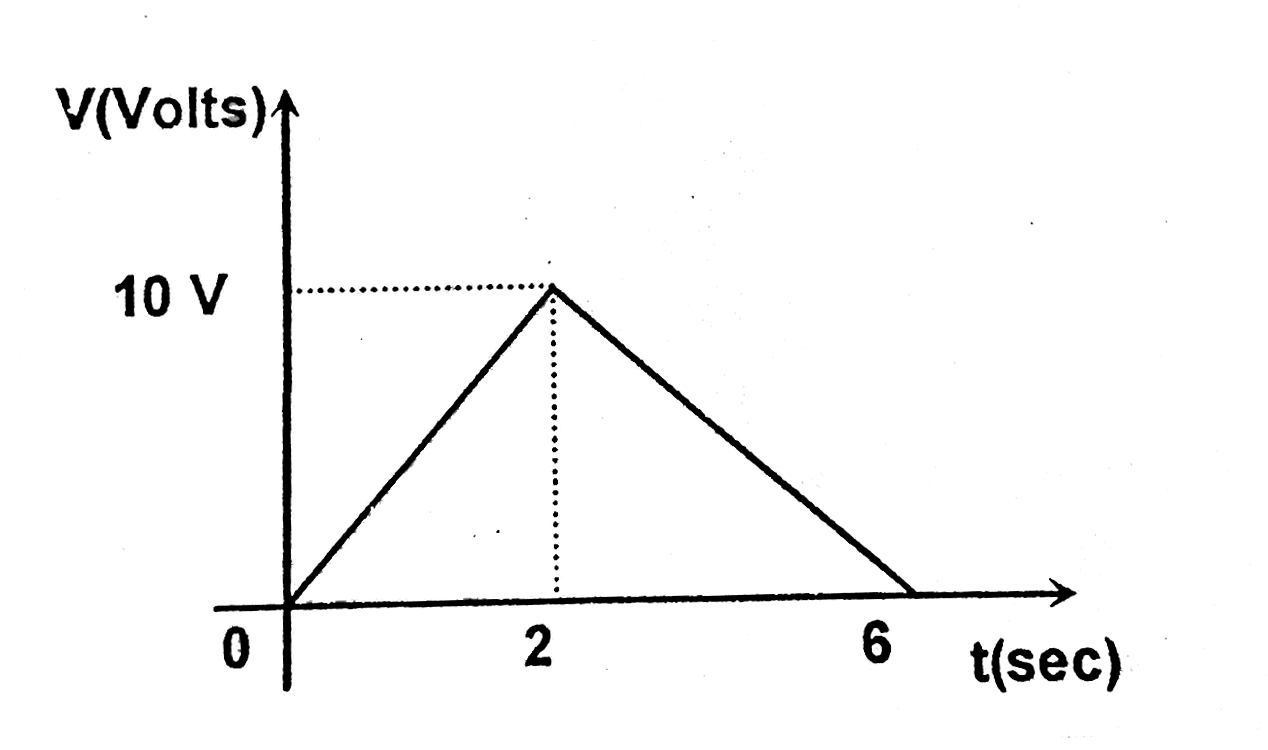Assertion : If potential difference across two points is zero, current between these two points should be zero.
Reason : Current passing from a resistor I=VR
If both Assertion and Reason are true and the Reason is correct explanation of the Assertion.
If both Assertion and Reason are true but Reason is not the correct explanation of Assertion.
If Assertion is true, but the Reason is false.
If Assertion is false but the Reason is true.
The correct Answer is:D
To solve the question, we need to analyze both the assertion and the reason provided.
Step 1: Understand the Assertion
The assertion states: "If the potential difference across two points is zero, current between these two points should be zero."
- Analysis: If the potential difference (V) between two points A and B is zero (V_AB = 0), it implies that both points are at the same electric potential. According to Ohm's Law, the current (I) through a resistor is given by the formula:
I=VR
If V = 0, then I = 0, which suggests that no current would flow between these two points if they are connected through a resistor.
Step 2: Understand the Reason
The reason states: "Current passing from a resistor I = V/R."
- Analysis: This is a correct statement according to Ohm's Law. It indicates that the current through a resistor is directly proportional to the voltage across it and inversely proportional to the resistance (R).
Step 3: Evaluate the Assertion and Reason Together
While the reason is correct, the assertion is not universally true.
- Counterexample: Consider a circuit with multiple branches. If two points are at the same potential but connected to different paths with resistors, current can still flow through those paths even if the potential difference between those two points is zero. Therefore, the assertion is false.
Conclusion
- Assertion: False
- Reason: True
- Final Statement: The assertion is false, but the reason is true; however, the reason does not correctly explain the assertion.
The assertion states: "If the potential difference across two points is zero, current between these two points should be zero."
I=VR
The reason states: "Current passing from a resistor I = V/R."
While the reason is correct, the assertion is not universally true.
- Assertion: False
- Reason: True
- Final Statement: The assertion is false, but the reason is true; however, the reason does not correctly explain the assertion.
Topper's Solved these Questions
- BOOK - DC PANDEYCHAPTER - CURRENT ELECTRICITYEXERCISE - Level 1 Objective40videos
CURRENT ELECTRICITY
- BOOK - DC PANDEYCHAPTER - CURRENT ELECTRICITYEXERCISE - OBJECTIVE_TYPE1videos
CURRENT ELECTRICITY
- BOOK - DC PANDEYCHAPTER - CURRENT ELECTRICITYEXERCISE - Exercise 23.132videos
CURRENT ELECTRICITY
- BOOK - DC PANDEYCHAPTER - COMMUNICATION SYSTEMEXERCISE - Subjective11videos
COMMUNICATION SYSTEM
- BOOK - DC PANDEYCHAPTER - ELECTROMAGNETIC INDUCTIONEXERCISE - Medical entrances gallery25videos
ELECTROMAGNETIC INDUCTION
Similar Questions
Knowledge Check
- Question 1 - Select One or More
When a potential difference is applied across, the current passing through
Aan insulator at 0 K is zeroBa semiconductor at 0 K is zeroCa metal at 0 K is finiteDa p-n diode at 300K is finite, if it is reverse biased - Question 2 - Select One
Statement-1: If potential difference between two points is zero and resistance between those points is zero, current may flow between the points.
Statement-2: Kirchhoff's 1st law is based on conservation of charge.AStatement-1 is True,Statement-2 is True, Statement-2 is a correct explanation for Statement-1BStatement-1 is True,Statement-2 is True, Statement-2 is NOT a correct explanation for Statement-1CStatement -1 is True, Statement-2 is false.DStatement-1 is False, Statement-2 is True. - Question 3 - Select One
If path difference between two interfering waves is zero, then the point will be
AdarkBbrightCas it isDeither dark of bright
What is meant by saying that the potential difference between two points is 1V ?
View SolutionAssertion : If gravitational potential at some point is zero, then gravitational field strength at that point will also be zero.
Reason : Except at infinity gravitational potential due to a system of point masses at some finite distance can't be zero.View SolutionAssertion: For two sources to be coherent phase difference between two waves at all points should be same.
Reason: Two different light sources are never coherent.View SolutionAssertion potential difference across, resistor, capacitor and inductor each is 10V. Then, voltage function and current functions should be in phase.
Reason At this condition current in the circuit should be maximum.View SolutionThe potential difference across a 10H inductor as a function of time is shown in the figure. At t=0 current is zero. Then
 View Solution
View Solution

